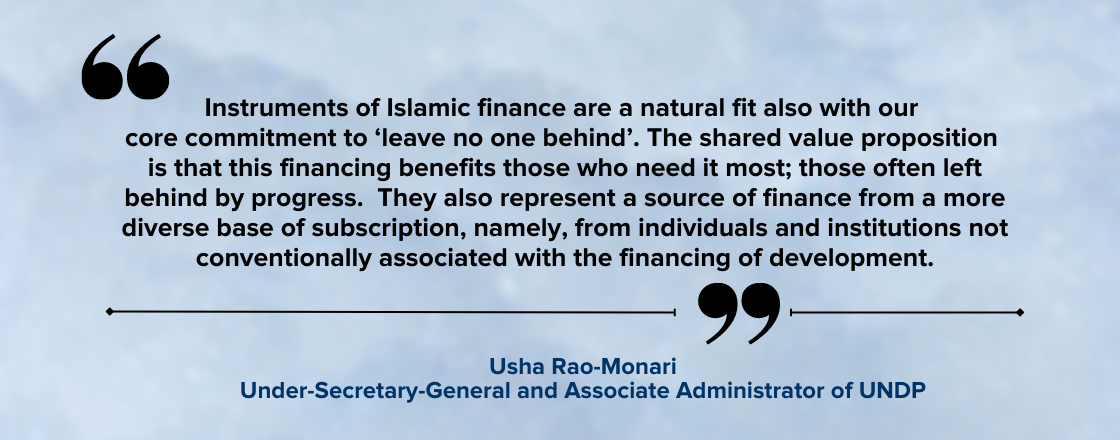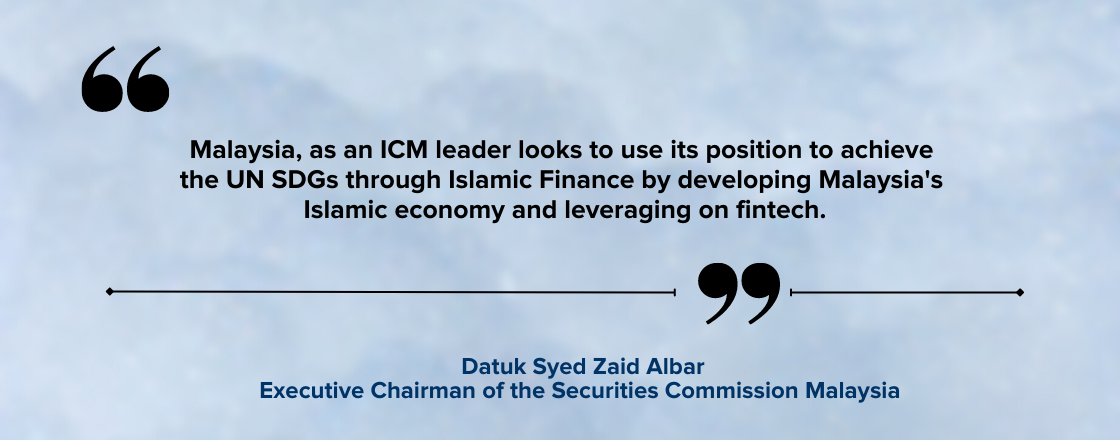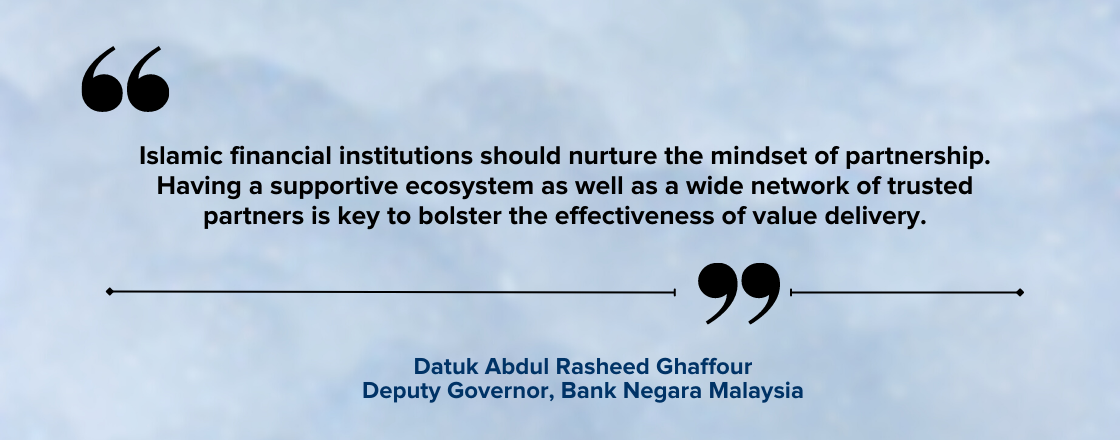By:
Maximilian Steinbach and Haniza Khalid, Learning and Insights Hub, UNDP Malaysia, Singapore and Brunei Darussalam
With the year 2030 rapidly approaching and the United Nations International Climate Conference (COP-26) held in November 2021 in the bag, where 197 countries again pledged their support to pursue the Paris Agreement of limiting global warming to 1.5°C above pre-industrial levels, new enthusiasm towards the achievement of the Sustainable Development Goals (SDGs) is spreading (Gagen, 2021). However, the underlying urgency to accelerate the achievements of SDGs is visible now more than ever, as the world economy recovers from the backdrop of the global COVID-19 pandemic. Visible, in a sense that instead of trying to build back better from the economic downturn, the world community has emitted more CO2 in 2021 than ever before in history, despite the nations’ pledge at COP-26, according to the Global Energy Review (IEA, 2022).
Bearing this context in mind, it is fitting that UNDP Malaysia together with the Securities Commission Malaysia, the Islamic Banking & Finance Institute Malaysia, the Chartered Institute of Islamic Professionals and the Islamic Development Bank Group, have held the Islamic Finance International Conference 2022 (IFIC) this February, to further expand the discourse on how progress towards the SDGs can be accelerated through Islamic finance. Malaysia is a global powerhouse in respect to Islamic Finance, with the share of Islamic financing amounting to 37% of the banking sector by end-2020 (FitchRatings, 2021). As such, a full integration of Islamic Finance and SDG objectives potentially presents a gamechanger opportunity not limited to Malaysia, but capable of reaching international significance. Hence, the conference, appropriately titled “Connecting the Dots: Harnessing Islamic Finance to Accelerate the Achievement of the SDGs” aimed to shed light on the compatibility between Islamic Finance and SDG financing and to bring government representatives, civil society, the private sector, and academia closer together in sharing their innovative visions.
Islamic Finance focuses on value-driven and impact-focused financing that conforms with the Maqasid al-Shariah. The underlying principles of Islamic Finance support economic growth that is inclusive, balanced, and most importantly sustainable. It endorses a balanced wealth creation and wealth circulation i.e. a matter that is directly addressed in the SDGs, particularly Goals 1, 2, 5, 8, and 10. The principles of profit and risk sharing in Islamic Finance and charitable giving in Islamic Social Finance embodies the spirit of LNOB, where the rich has a duty to help the poor as rights holders to improve the latter’s socio-economic conditions. Islamic Finance also must be grounded on Muslim’s belief that nature is created on the principle of balance, and as a steward of God, it is man’s responsibility to ensure that his or her actions do not disrupt planetary health.
The 2-day conference delved on manifestations of these principles, through 3 thematic panels.
1. New frontiers for Islamic Social Finance: Waqaf, Zakah and Sadaqah as Collective Impact Funds
Islamic social Finance highly supports social equity, e.g., frameworks such as Zakat, a tax on wealth and income, focus on the re-distribution of wealth among society and are seen as a duty of each Muslim, exempting those who are too poor i.e. those who if they were to give Zakat, would cause hardships unto themselves. Sadaqah, in turn promotes the goal social equity further as it enhances the obligatory Zakat by additional given voluntary charity. As one of the panelists, Dr. Engku Rabiah Adawiah Engku Ali of the Shariah Advisory council of the Securities Commission Malaysia argued, there is a need to “enhance the use of Zakat and Sadaqah towards long term development and productivity will enable society to become more equitable”. The closest alignment of philosophies between the SDGs and Islamic Social Finance, however, can be found in the financial instrument of Waqf, as the concept aims at aiding broader socioeconomic development. The donation of assets held in a trust played a vital role in many Muslim societies - providing a source of sustainable finance to support poverty alleviation programs, public health, and education projects. It is based on the principle of capturing private savings, transmitting them intergenerationally and converting them into social wealth. As Yoseph Ataa Alsawady, Investment Specialist at the Islamic Development Bank, mentioned at the panel session, the Islamic philanthropic incentive of giving and creating social wealth is at the core of Waqf.
2. Harnessing Islamic FinTech for Social Impact
The conference speakers concur that effective usage of financial services’ FinTech solutions can transform the way development finance is mobilized from the society and delivered to the beneficiaries, far beyond the scope of the traditional channels. Islamic FinTech can help to decrease market transaction costs and to encourage innovation e.g. crowdfunding platforms and digital banking – that allocate necessary capital in a faster way to enterprises and initiatives. During the COVID-19 pandemic FinTech has shown to be an effective tool for the underbanked and SMEs unable to access traditional financing. Digitalising the Islamic Financial sector bears a lot of potential to reduce the costs of sectoral inefficiencies. Particularly when it comes to the digitalisation of Islamic Financial instruments such as Waqf, and Zakat adoption of technology can enhance the efficiency and effectiveness of mobilisation and distribution of the financial resources, for example using blockchain and Artificial Intelligence (AI) to integrate databases and track beneficiaries’ needs and progress. The benefits can also be reaped in regard to allocation of social impact capital to non-profit sectors working with special groups or projects. As the conference has shown, while there is still a lot of work to be done to ensure wider adoption of Islamic FinTech solutions, COVID-19 pandemic and the new resulting economic landscape have exponentially increased the demand for FinTech and is re-shaping the financial infrastructure we have today. Fully embedding FinTech into the Islamic Financial sector requires development of sound regulations and legal frameworks by monetary authorities as approved by Shari’ah scholars.
3. Impact Assurances and Measurement in Islamic Finance’s Sustainability Agenda
Islamic Finance can significantly contribute to sustainable economic development, given its direct link to physical assets and the real economy. In addition, by not pursing profit-motivated growth but being governed by principles of equitability and ownership, Islamic Finance can meet the needs of present and future generations without restraining the latter by being fixated on the pursuance of short-term profit, says Sara Lisa Orstavik, SDG Finance and Impact Specialist at UNDP.
However, impact assurance and measurement in Islamic Finance is still not clearly established as a practice. As practices precede good reporting, a system of impact assurance is necessary. It is crucial for firms to see whether their internal and external practices are in line with sustainable development principles and contribute to the creation of positive impacts. Impact assurances are not only important from a monitoring perspective, but for firms to see the right and wrong of their practices themselves and provide that the vital incentive to do better. With regards to Islamic Finance, the underlying foundation for an impact assurance system is already clearly derived from the Maqasid al-Shariah, i.e. that it should be a natural duty for the industry players in Islamic Finance to generate positive and sustainable impacts from all of their activities. The challenge is with the measurement of impact. The lack of willingness to report sustainability performance, where reporting is not mandatory makes progress in this direction difficult. Islamic financial institutions have traditionally been strongly inclined to show their contributions to social communities and education but less so on environmental commitments. Nik Shahrizal Sulaiman, PwC Malaysia said this shows the need for sound common reporting standards and frameworks when it comes to raising accountability for sustainability. Various standards already around, but sparsely implemented, hence, what could be useful and practical is leveraging on existing standards and consolidating them instead.
References:
- FitchRatings. (2021). Malaysia’s Islamic Banking Sector Continues to Expand Despite Pandemic. FitchRatings.Com.
- Gagen, M. (2021, November 17). Glasgow Climate Pact: where do all the words and numbers we heard at COP26 leave us? The Conversation.
- IEA (2022), Global Energy Review: CO2 Emissions in 2021, IEA, Paris

 Locations
Locations

